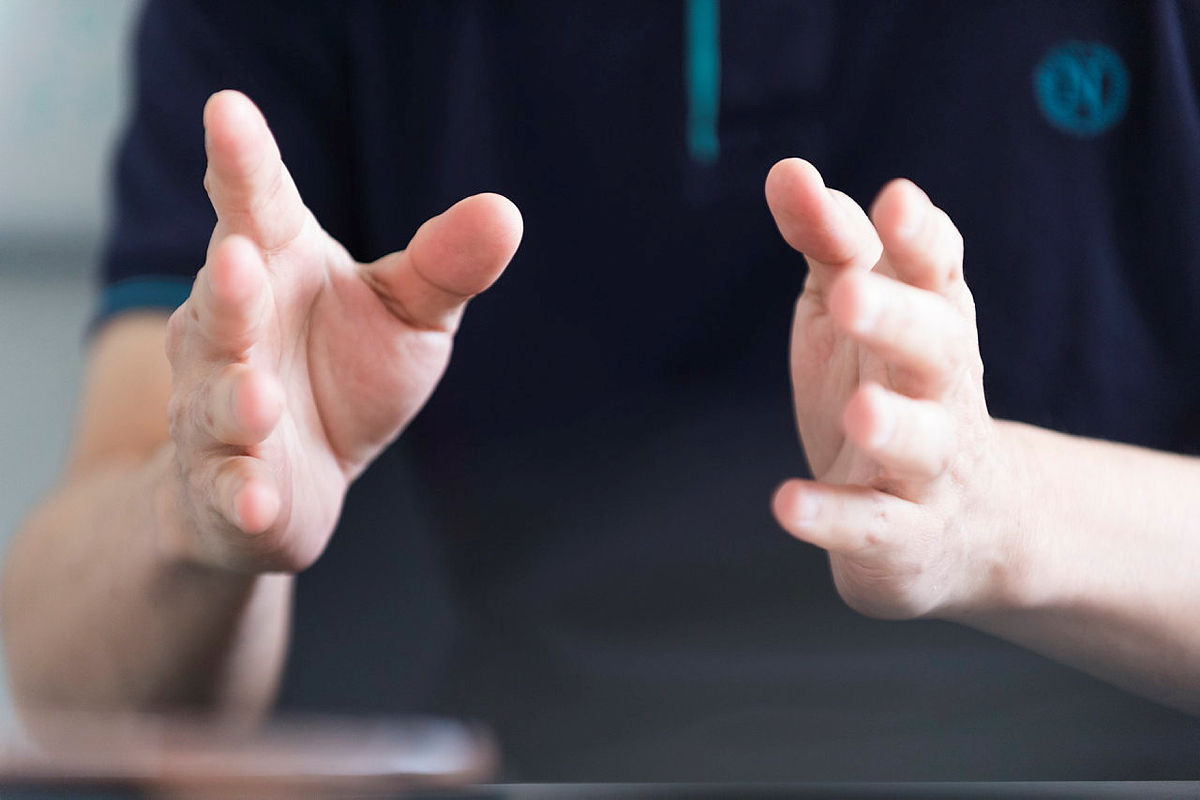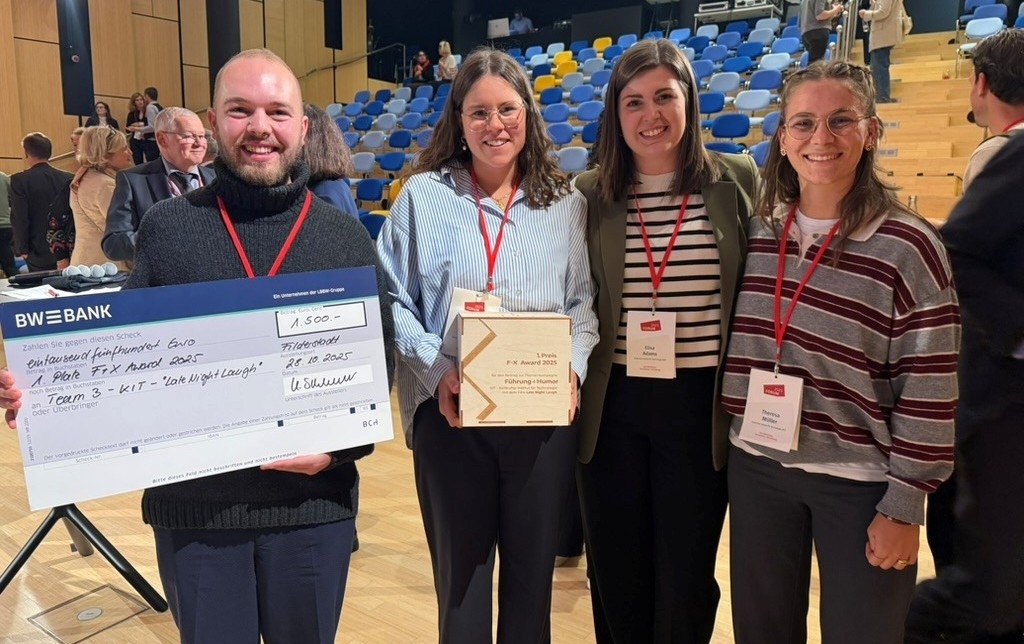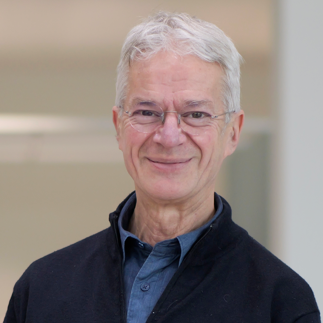Welcome!

On Saturday, January 17, 2026, Professor Dr. Britta Klopsch will give a lecture on the topic of "The School of the Future 2041" at the GEW Education Congress. Afterwards, she will discuss a sustainable model for schools with representatives from politics and the GEW and develop ideas for the next few years of education policy in Baden-Württemberg.

In the summer semester 2025, students from the seminar "Teacher Leadership and Humor - a Contradiction?", led by Prof.'in Dr. Klopsch, took part in the competition of the Karl Schlecht Foundation's FÜHRUNG+X initiative. The entries were films on the annual theme of "Leadership + Humor". First place went to students Nele Epperlein, Lisa Reichert, Jacob Dreher and Felix Schuppler, who impressed the jury with their video "Late Night Laugh". Congratulations!
%20(1)_rdax_1024x648_98s.jpg)
On November 7, 2025, the event "Schule im Wandel - Brücke zwischen Wissenschaft, Vielfalt und demokratischer Verantwortung" took place at KIT as part of the lecture and seminar "Inklusive Bildung im Jugendalter" (Inclusive Education in Adolescence ) in the educational science accompanying studies for the grammar school teaching profession. Various impulse talks as well as a variety of different institutions, centers and initiatives that presented themselves at the "Market of Opportunities" brought together invited students and guests to exchange, inform and discuss the topic of "Inclusive Education". The event was profitable, informative and stimulating for everyone present.
A big and heartfelt thank you to our partners: Zentrum für Schulqualität und Lehrerbildung, Staatliches Schulamt Karlsruhe, Fachteam Inklusion, Polizei Karlsruhe, Kompetenzzentrum gegen Extremismus BW (KONEX), SWR Planet Schule, Stadtmedienzentrum Karlsruhe, ASKO Karlsruhe, Arbeitsstelle Kooperation, Mobiles Beratungsteam Nordwest (Mobirex), QueerKAstle (Karlsruher Zentrum für queere Vielfalt), AWO Sachgebiet Bildung und Integration, Seckenheimschule Mannheim, Oberlin-Schulverbund Kehl/Kork

Britta Klopsch
As a scientific discipline, school pedagogy deals with schools and their development, teaching and its teaching-learning processes as well as the professionalization of teachers and school management. It also deals with the institutional and social contexts that shape the reality of schools.
School pedagogy at KIT focuses on school and teaching development as well as teacher professionalization from an (inter)national perspective. We do not only research and teach at university level, but also create and impart knowledge for society and schools in Baden-Württemberg.
The School Pedagogy degree program connects all students who are aiming to become secondary school teachers and is responsible for the accompanying educational science studies in the Bachelor's and Master's degree programs.

Gerd Gidion (retired)
Technikdidaktik wird am KIT als Teil der Berufspädagogik thematisiert. Sie beschäftigt sich mit der wissenschaftlichen Untersuchung und Gestaltung des Lernens und Lehrens mit technischen Anwendungen. Ein direkter Bezug besteht zu den beruflichen Handlungsfeldern der Bautechnik, Metalltechnik, Elektro- und Informationstechnik. Darüber hinaus werden digitale Technologien im privaten, öffentlichen, beruflichen und akademischen Leben behandelt. Die Technikdidaktik vertieft die grundlegende Didaktik und Methodik und ist allgemeine Grundlage für technisch ausgerichtete Fachdidaktik. Die Mediendidaktik ist am KIT eng mit der Technikdidaktik verbunden und ist offen für Studierende und Anwender*innen, die mit einem zeitaktuellen Technikverständnis (beispielsweise auf Grundlage der Smartphone-Nutzung) an didaktischen Aspekten interessiert sind.

Ingo Wagner (formerly)
Our Chair “Interdisciplinary Didactics of STEM Subjects and Physical Education” strives to actively shape the future of education. The central starting point for this is our research on didactic designs of teaching-learning processes in order to strengthen teacher training at university, in teacher traineeships and at school. We are researching new possibilities for interdisciplinary didactics, for example through our work to strengthen digitization. Other important interdisciplinary aspects such as sustainability, the heterogeneity of learners or the prevention of teaching disruptions are given special consideration. This is enriched through participatory collaborations with teachers, our own programs for pupils and our research-oriented teaching.

The ZLB serves as a central point of contact for all students studying to become secondary school teachers at KIT.
Website ZLB
Das ZML setzt sich für die kontinuierliche und systematische Entwicklung der Mediennutzung in der Lehre ein und treibt so die Digitalisierung in der Lehre am KIT voran.
Webseite des ZML
Das Forschungszentrum für den Schulsport und den Sport von Kindern und Jugendlichen.
Webseite des FoSS
Das LernLABOR am House of Competence (HOC) sorgt für ein umfangreiches Lehr- und Beratungsangebot rund um das Thema „Lernen im Studium“.
link